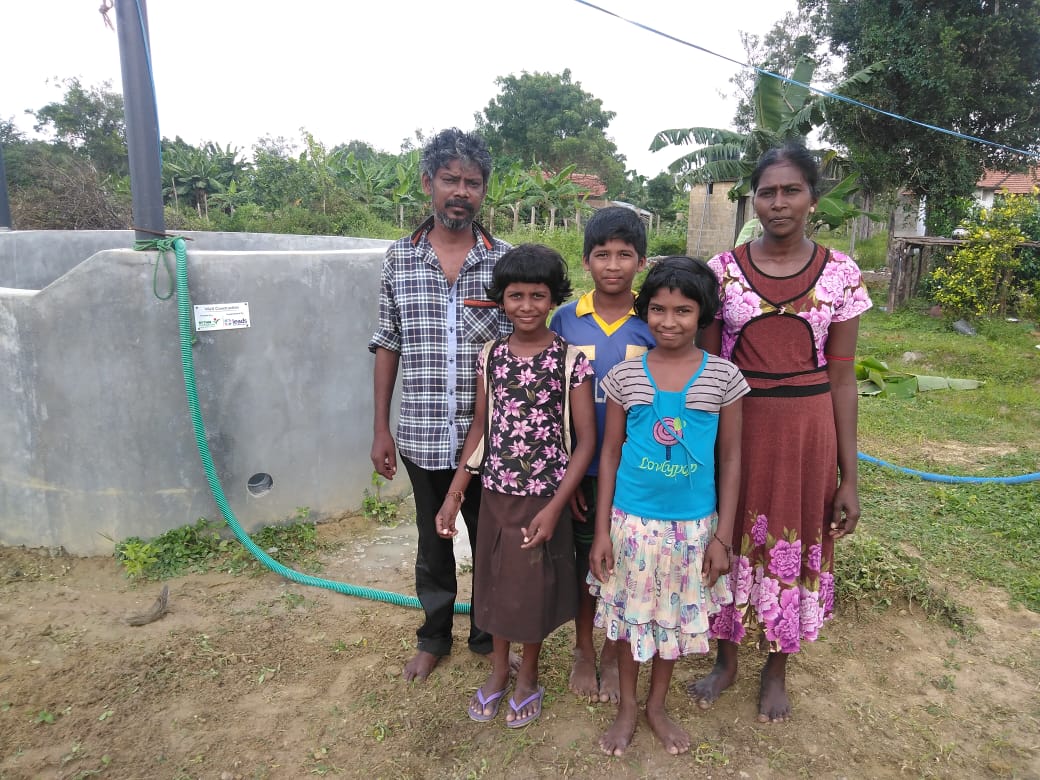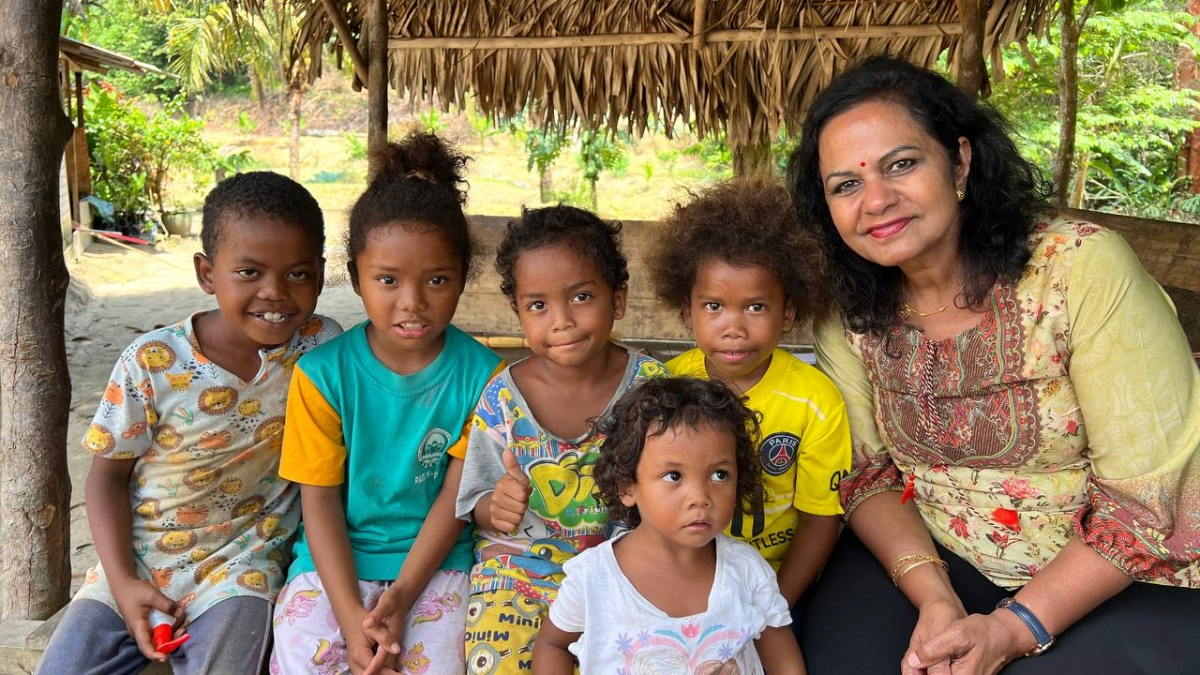More than a decade has passed since the Sri Lankan conflict ended, yet many parts in the Northern Province of the country have scarce support for holistic socio-economic improvement. One such place is the Vallipunam village in Mullaitivu District, Sri Lanka.
A majority of the families here earn a meagre income through farming or daily wage labour. Due to a lack of opportunities in the area as well as absence of specific skill sets among locals, many of them are unable to uplift themselves economically by engaging in other livelihood or occupation.
Additionally, the villagers also face a more pressing challenge due to lack of easy access to clean water in the community. The climate is very dry in the district and while wells have been the primary source of water traditionally in the area, many wells were damaged during the war and the few that survived are not in usable conditions.
Vallipunam village does have a few usable water wells owned by some of the villagers which is typically shared by the community. However, during the drought season these wells begin to dry up and water levels go down drastically. In such cases, the well owners are reluctant to share since they need the limited amount of water for their own use.
During such times, groups of villagers can be seen carrying buckets and other vessels, making the 2 km long trek to the closest available source of water outside their village.
S. Sivaambihai, a 35-year old woman from Vallipunam is one of those who has been facing this constant struggle for water. She has three children aged 13, 12 and 9. Her husband is an odd job worker and what little he earns is mostly spent on purchasing food supplies. Along with her kids, she does the daily trek to search for water outside the village.
“Doing the daily walk to fetch water from the sources outside the village is a very time-consuming task and the children are also often tired. Due to the distance that we need to walk to get water, the children were always late to school,” she said.
“Our small vegetable patch was dry and could not be cultivated as there was no water to tend to the plants. Life was very difficult for us,” she added.
RYTHM Foundation and its partner LEADS started the Northern Province Community Development Project in May 2019 which includes various initiatives to help empower the local community through skills development and other self-sustaining projects. In September 2020, a new initiative was launched under this community development project to construct water wells.
So far, three wells have been built and four more are in the pipeline. Each new well is now shared by up to five families. The families are also held responsible for the maintenance of their well.

“With the water well, my children are no longer late to school. With access to water in our own compound, I am able to develop our vegetable patch,” she said adding that her family is now able to consume fresh vegetables and fruits. She has planted banana, lime, brinjal and chillies so far.
“Now I am able to save some money which would otherwise be used to purchase food supplies. I hope to further grow the garden with more vegetables so that I can sell the produce. The income would greatly help my family,” she said.
So far, about 15 families have benefited from this project. LEADS a non-governmental organisation dedicated to helping the disadvantaged and vulnerable families hopes to reach around 354 families by April 2022, through this project.
 “With the water well, my children are no longer late to school. With access to water in our own compound, I am able to develop our vegetable patch,” she said adding that her family is now able to consume fresh vegetables and fruits. She has planted banana, lime, brinjal and chillies so far.
“With the water well, my children are no longer late to school. With access to water in our own compound, I am able to develop our vegetable patch,” she said adding that her family is now able to consume fresh vegetables and fruits. She has planted banana, lime, brinjal and chillies so far.





